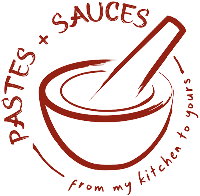Subscribe to Paste and Sauces
Stay in the loop for new products and recipes by signing up to our mailing list.
Toasted from coconut cream
| Ingredients | Coconut cream |
|---|---|
| Spice Level | 0 |
| Weight | 180g |
| Dietry Suitability | Suitable for Vegetarian/Vegan/Gluten Free |
Add a tropical touch to your dishes with this blend of toasted coconut cream, also known as kerisik – Toasted shredded coconut that has been roasted, ground and pounded into a paste-like consistency. This process releases the natural oils in the coconut for a rich, creamy and slightly oily texture.
Kerisik promises to infuse your dishes with an irresistible depth of flavour. We consider this to be the ‘crème de la crème’ of Malay cuisine and one of the most important ingredients in a good rendang. Not that not all Malay dishes require kerisik.
Toasted from coconut cream
| Ingredients | Coconut cream |
|---|---|
| Spice Level | 0 |
| Weight | 180g |
| Dietry Suitability | Suitable for Vegetarian/Vegan/Gluten Free |
Add a tropical touch to your dishes with this blend of toasted coconut cream, also known as kerisik – Toasted shredded coconut that has been roasted, ground and pounded into a paste-like consistency. This process releases the natural oils in the coconut for a rich, creamy and slightly oily texture.
Kerisik promises to infuse your dishes with an irresistible depth of flavour. We consider this to be the ‘crème de la crème’ of Malay cuisine and one of the most important ingredients in a good rendang. Not that not all Malay dishes require kerisik.
Oil plays a key role in Malay cooking for several reasons:
Pecah minyak is a technique commonly used in Southeast Asia’s cooking. It translates to ‘breaking the oil’ in English.
This process involves cooking or frying a mixture of spices, herbs and aromatics in oil until the oil separates or ‘breaks’ from the solid ingredients. This indicates that the flavours and spices have been fully extracted from the solid ingredients and distributed throughout the dish.
To achieve pecah minyak when making a paste or spice blend:
Different types of rice may require slightly different cooking methods, so it is always best to refer to specific package instructions or recommended cooking times for the best results. The ratio of rice to water used can also affect the outcome. Practice and adjustments may be necessary to find the method that best suits your tastes.
Follow these tips for the perfect accompaniment to our range of authentic Malay recipes.
Stay in the loop for new products and recipes by signing up to our mailing list.

Please don't hesitate to reach out to us at admin@pastesandsauces.com
Here are a few quick tips to make your cooking experience smoother and more enjoyable:
Join our mailing list for updates, new recipes and offers.

Please don't hesitate to reach out to us at admin@pastesandsauces.com
Free delivery on orders over £40 in the UK
We do not generally deliver to addresses outside England and Wales, Scotland, Northern Ireland, the Isle of Man and the Channels Islands. If, however, we accept an Order for delivery outside that area, you may need to pay International postage charges and any import duties or other taxes, as we will not pay them.
Stay in the loop for new products and recipes by signing up to our mailing list.

Please don't hesitate to reach out to us at admin@pastesandsauces.com